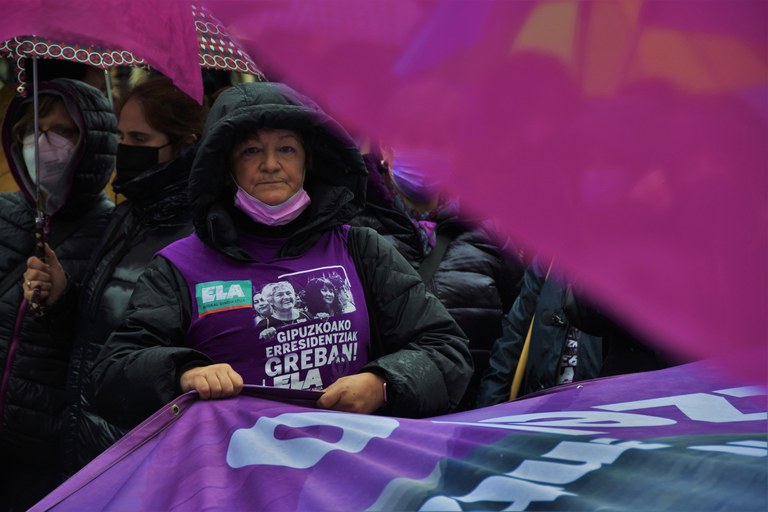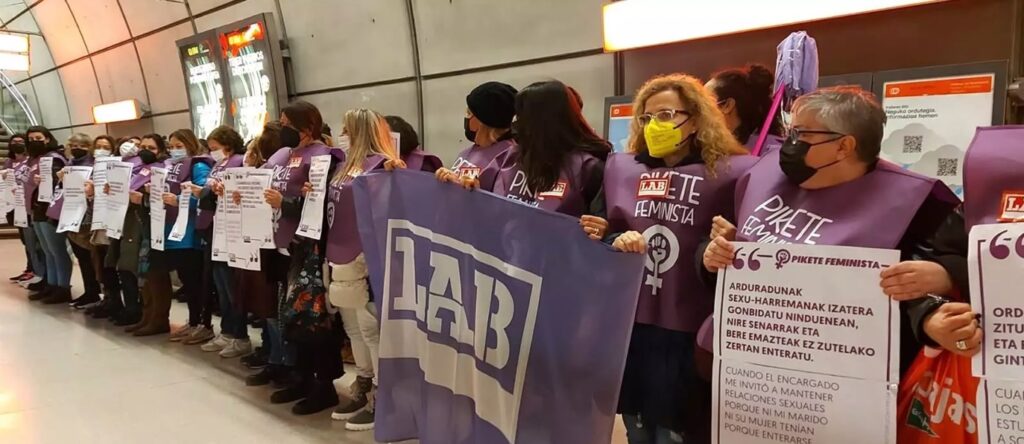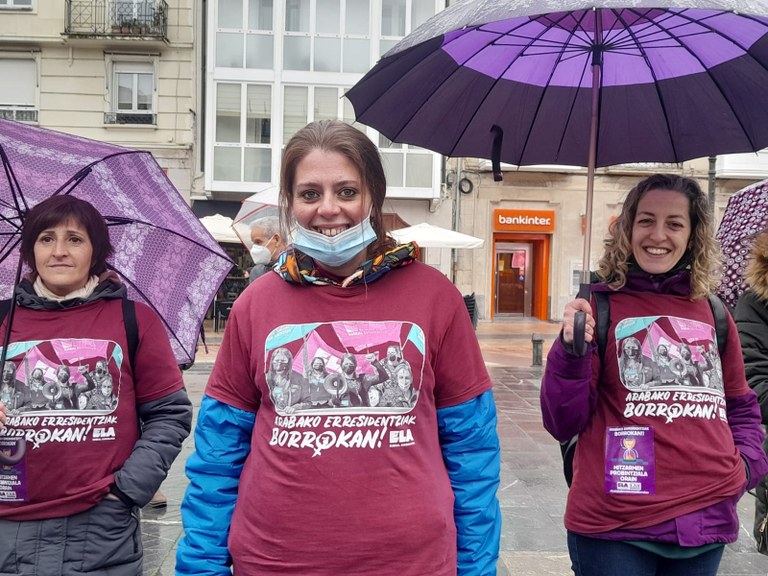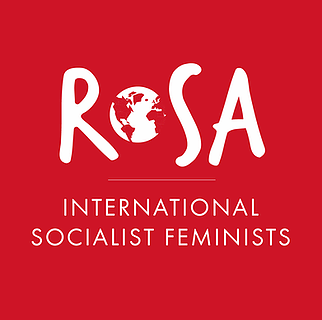What happened in Spain on March 8th?

Offensiv interviews John Hird, a teacher and socialist in the Basque Country, about the state of the massive feminist movement in the country. Events and developments which are not fully reported in the mainstream media. What happened on international women’s day 2022 in the Spanish State ?
by Elin Gauffin // Article originally in Offensiv (ISA in Sweden)
The high point of the women’s struggle was in 2018/19 when demonstrations by hundreds of thousands and even strikes took place in parts of the country. The pandemic cut off the upward movement, but it is still alive.
On March 8th, 2020 the PSOE-UP government had authorised the women’s marches, which took place in the start-up phase of the covid-19 pandemic. The right-wing parties VOX and PP exploited this by claiming that it was the fault of women (all of whom had been out demonstrating for feminism) that the virus became so widespread in Spain.
The pandemic and the way the establishment failed to fight it effectively, meant a sharp increase in the oppression of women. In surveys, 79% of women said they felt more threatened during the pandemic. 486 cases of violence against women are reported to the police every day (and there is still a large underreporting rate). There has been a 9.6% increase in reported violence against women.
VOX and PP have started to try and change the language used in public debate about violence against women. In the past, violence was called «domestic violence». The feminist movement has changed this to «gender violence» as the generally accepted term.
When there is a murder of a woman, a femicide, there is always a protest. This must never happen in silence – the women’s movement has seen to that.
It was in mid-October last year that Erika Tavares was killed by her ex-husband in Vitoria-Gastiez. This time there were not only protests, but also strike action, when her fellow workers at the Mercedes factory walked off their shift for 30 minutes to mark their disgust at this horrific act. Since then, there have been more such expressions of feminist workers’ struggle.
In the Bilbao metro, many cleaners work on subcontracts. When one of them reported sexual harassment, the union organised a demonstration inside and outside the metro.

A woman on the bus was assaulted by her partner and the driver who tried to stop it was also attacked. The union responded by taking part in a concentration – a protest against the violence.
In the regional elections in the province of Castilla y León, the neo-fascist VOX gained ground. The traditional right, the PP, needed to make a deal with them to form a joint government. These right-wing parties have now proposed a law to stop calling men’s violence against women gender violence, and to call it ‘inter-family violence’ instead. This is a way of making the victims invisible and shifting the spotlight away from the causes of violence against women. It is a clear example of how the right are prepared to push back and even over-turn gains made by women.
The right also incites abuse against women and anyone who protests, by calling them «feminazis».
The most radical Basque union, ELA, organises many workers who were previously unorganised, such as local cleaners, health workers protesting against cuts and home care workers. They deliberately link workers’ struggles with feminism by often dressing in purple at protests. They have pushed for private companies to disclose wage level openly and have helped women to see how they are discriminated against and to protest against this.

The women’s struggle goes on daily. On March 8th itself, there were again large student strikes, and although the demonstrations in the evening were not as large as in previous years, they were still large. For example, there were 50,000 in Madrid and the same number in Barcelona, as well as demonstrations with thousands of participants in all large and medium-sized cities across the country.






